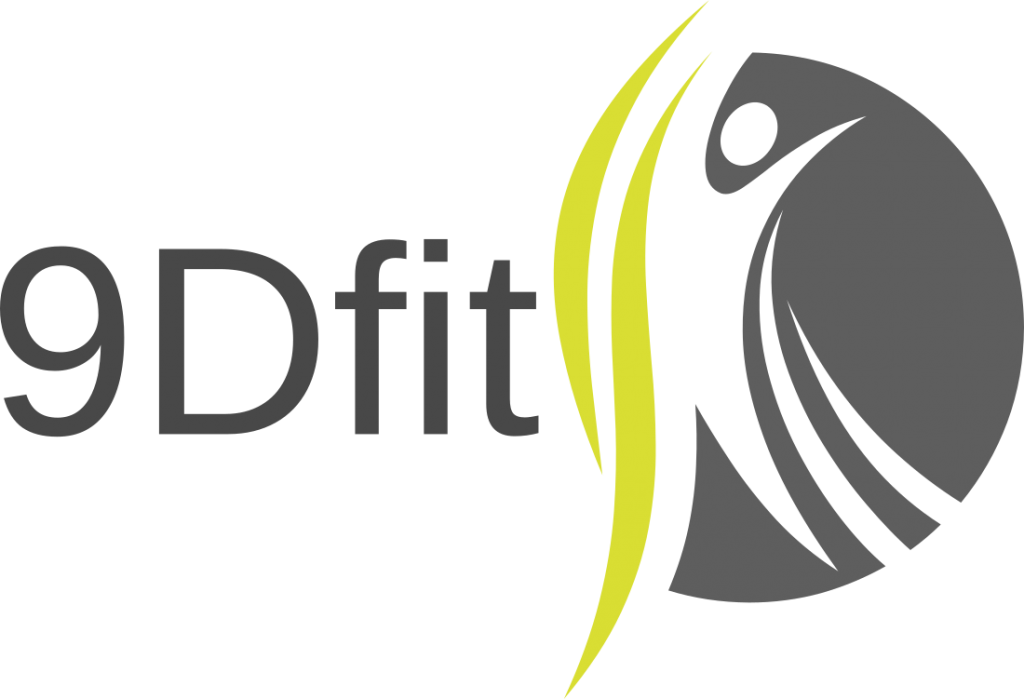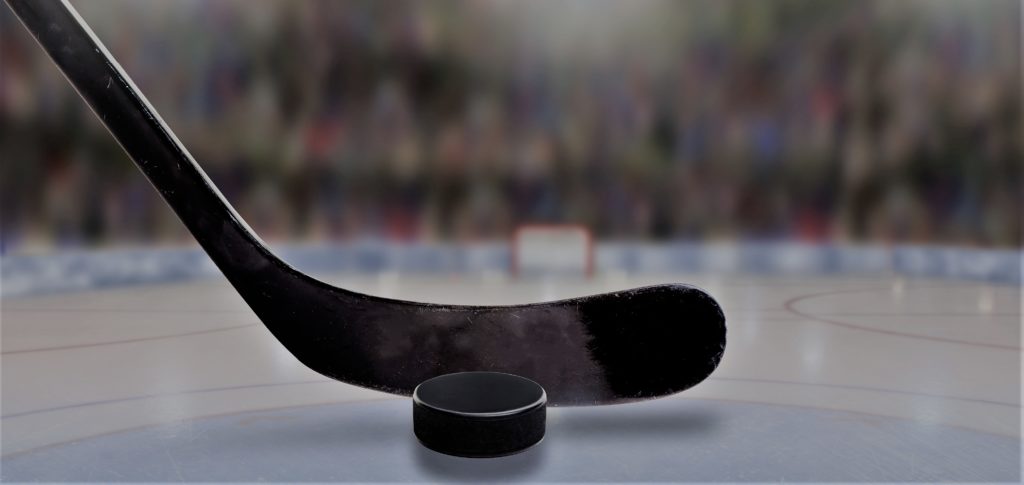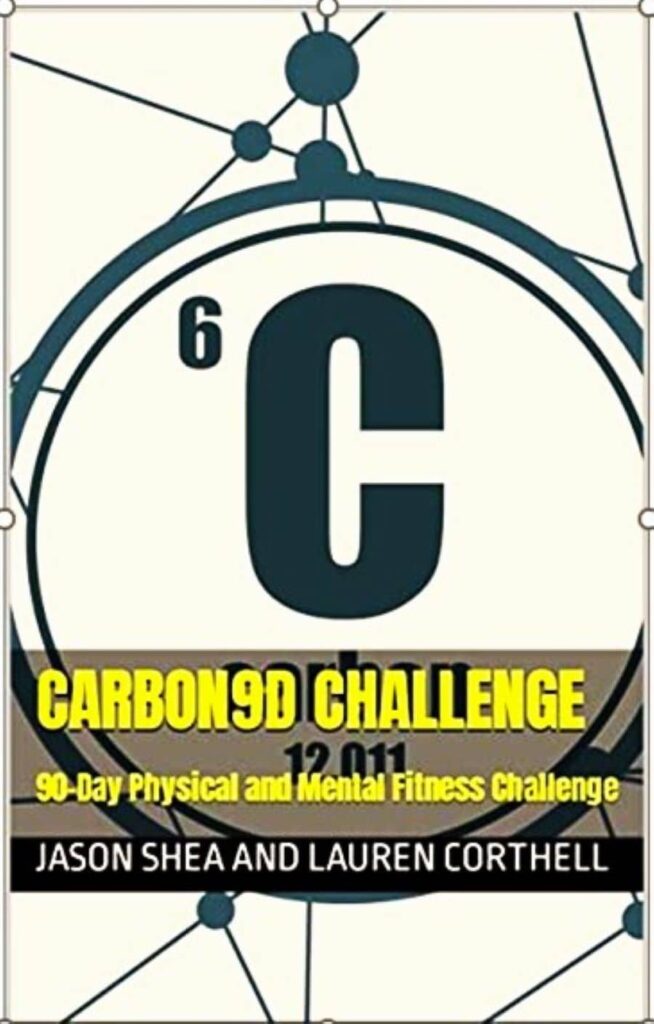
West Roxbury, Massachusetts. About 10 miles west of Boston, it is home to Catholic Memorial high school, or CM. Catholic Memorial Hockey has been the place where several NHLers, NCAA champions, Olympians, and current and former Division I hockey coaches have all been molded into men. They have had Hobey Baker Finalists and Stanley Cup winners. Crowds have gone silent when CM has walked into the building during tournaments. Players would commute from as far away as 30-40 miles away in hopes of playing here. The Scarlet Knights have won 6 National Championships, 13 “Super 8” Tournament Championships, and have been to the state championships 20 times, winning 17 of those trips.
The son of a South Boston electrician, Coach Bill Hanson approaches life and coaching with that same blue collar work ethic as his dad. In 1974, Hanson began his tenure at CM as a hockey coach. In 1976, he took over as Head Coach. By 1985 the team was State Champion. The coach takes pride in checking on kid’s grades, schedules, and recruiting schedules. He teaches the kids discipline and accountability both through his actions and the lessons he imparts on the players and students.
Catholic Memorial Hockey Overview
National Champions – 1990–91, 1991–92, 1993–94, 1997–98, 2005–06, 2007–08
Super Eight Champions – 1990–91, 1991–92, 1992–93, 1993–94, 1994–95, 1997–98, 1998–99, 1999–2000, 2000–01, 2002–03, 2003–04, 2004–05, 2008–09
State Champions – 1985–86, 1986–87, 1987–88, 1989–90
Loyalty
That is the one word Coach Hanson uses to describe the culture of the Catholic Memorial Hockey team during his tenure. “From the very first team in the early 70s to the kids up until today, they all have tremendous loyalty to the program and the school.
Every Christmas eve we have an alumni game at BU. This is not publicized. There are anywhere from 40-60 players who show up for this. Guys from different decades. This is part of their tradition. Now some of the players are bringing their own children. It is amazing as I am now coaching 10 former player’s kids” expressed Hanson.
The coach continued “At CM we start in 7th grade. The younger kids look up to the kids that play on varsity and aspire to be there someday. Kids want to go the school because of the actual school. Then they see the success of the kids playing hockey. Kids just want to be a part of the program. The school cultivates a loyalty culture. So many of these kids have gone on to be tremendous successes in the community as well.
State senator, state reps, DA’s, Teddy Donato, are examples of kids that see success in life. We are trying to mold young men. They become educated Christian gentlemen.”
History
According to Hanson “I started in 74 as assistant varsity coach, then in 76 became the head coach. I was teaching at a public school in Boston. I had to take the bus to go and coach the kids here. I started teaching in here 1981. At that time, we were arguably playing in the best league in the state. I set a goal to win a state championship in some point of coaching career.
In 1986 we won our first one. We did not even win the league that year. BC High won the league that year, though we beat them twice. In 1985 we had our first marquee players; Paul Stanton and Richie Berger were nationally recruited for hockey. Stanton went on to become a 2 time All-American at Wisconsin. He was then drafted and went on to win a Stanly Cup with Pittsburgh.

Success breeds more success. More talent started coming in at that point. We started getting the city kids at that point. These city kids were intelligent but also had that inner city edge. Take for example the Dorchester Eagles youth football program. These were tough inner city kids that would play for national championships. We started getting kids like this who played hockey.
Believe it or not, back in the 60s Catholic Memorial was not a hockey school; it was known for its basketball program. Coach Perry ran the program. We realized that the only way a school is going to become dominant year in, and year out is to be there in every aspect of the kid’s life. Hockey is only one aspect of that. There is school. There is work. There is who he hangs out with. There is family. With this, the school hired me as the guidance counselor.
Chris Nilan. 36 players who were seniors at CM were actually NHL draft choices. Olympians, Stanley cup winners. These kids have seen tremendous success in College. One of BU’s national champion teams had 7 former CM players on the team. Jack Parker, BU’s head coach, was a CM grad. The entire coaching staff for BU two years ago were all CM grads.
It is important that the kids get to know you as a human being, not just a coach. I am blessed in that I have been able to separate how coach is Jekyll and Hyde. This is the person I am outside of the rink. This is what we do inside the rink, business is business. And academic business is business as well. In order to be successful in one you have to be successful in the other. If you are going to be a good hockey player, you better be a great student.
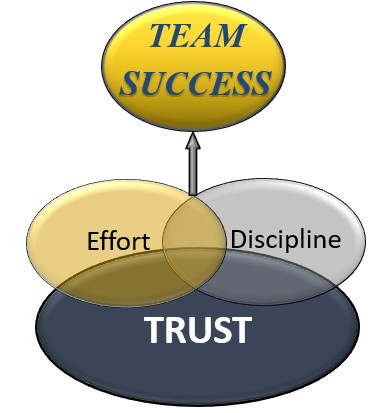
This takes character for the kids to understand this dual role. The coach rips into a kid in the rink, but then kid sees him in school as guidance counselor. What is my mission here at CM? To help produce an educated Christian gentleman. Whether through class, hockey, life, etc… The goal is the same. Hockey requires discipline, getting along with coaches, taking orders, perseverance. Those skills are learned. With those skills the kids are more able to handle many of the elements of daily life.
We want the kids to transfer the elements we demand as a coach: respect, character, loyalty, work ethic, into their academics, community, work, and family lives. We want the kids to take personal responsibility for keeping oneself focused on being a positive person at all times.
Jon Cuff was someone I looked up to. He was the USA coach for the national 16 year old team for 5 years. He worked under Herb Brooks. I was privileged to be in that program. I took what I learned from that program; coaching oversees in the world championships. I have learned quite a bit from Jon.
Today’s kids are different from those in the past. There is a sense of entitlement in these kids. I am owed this. I am owed that. That is the worst thing you can do to a kid or athlete. Everything has to be earned. Nothing should be owed to or given to them. We demand a lot from kids. There is no entitlement. We believe in building character in kids. They earn character and success. They are not entitled to it.

The entitlement attitude of today is “okay, well if I don’t make it here then I am just going to pack up and go somewhere else. Now you have 10, 11, or 12 year olds signing contracts to play for club junior teams. There is no such thing as town hockey anymore.”
“I had the privilege to have worked with Herb Brooks. You listen to people before you and how they did it. You saw the backgrounds of these kids and how they reacted to Herb and coach Taylor. Two completely different personalities. John Cuff was tough. You have to be congruent with other coaches.
| In an interesting study on teams prepping for a 2006 international Rugby tournament, researchers interviewed the teams one week before the tournament. The team, Australia, that had the highest mental toughness, positive cognition, and visualization scores, was also the team that just so happened to win the entire tournament (24). Sheard M. A cross-national analysis of mental toughness and hardiness in elite university rugby league teams. Perceptual and Motor Skills. 109(1); Pp 213-223. 2009. |
Jack parker noticed Mike Eruzione playing in league up in Winthrop while Jack was reffing a game. There was no entitlement. Hockey players all came up the same way in the 80s and 90s. They all played for their town and none of them had a sense of entitlement. 20 years ago, 8 out of 10 kids playing for us had part time jobs. Now it is 2 out of 10.
As a coach you have to foster a sense of loyalty. There is something bigger here now. You are not just representing yourself. You are representing your school, your teammates, your family. Loyalty is fostered playing for your town team. Then that loyalty is further cultivated playing for CM, then on to college and the pros” shares Hanson.
Everybody is Treated Equal
“Consistency in dealing with players is critical. Whether they are star players or 4th line players, they are all treated the same, in a fair and equitable way. Michael Sylvia played at BU. Michael said to me “coach one of the best things about it was you never treated the stars like stars. There was no caste system.
It can create resentment if kids are treated differently. I was so consistent in the way I treated everybody. When a lot of these kids got to college, unfortunately, that was not that way. And for some, their hockey career can suffer because of this.
We expect the same thing, nothing more or nothing less from the best players down to the 19th, 20th, and 21st players. Everybody gets the same amount of attention, respect, accountability expectations, I have never picked on kid on the 4th line. This may be one of the most important factors.
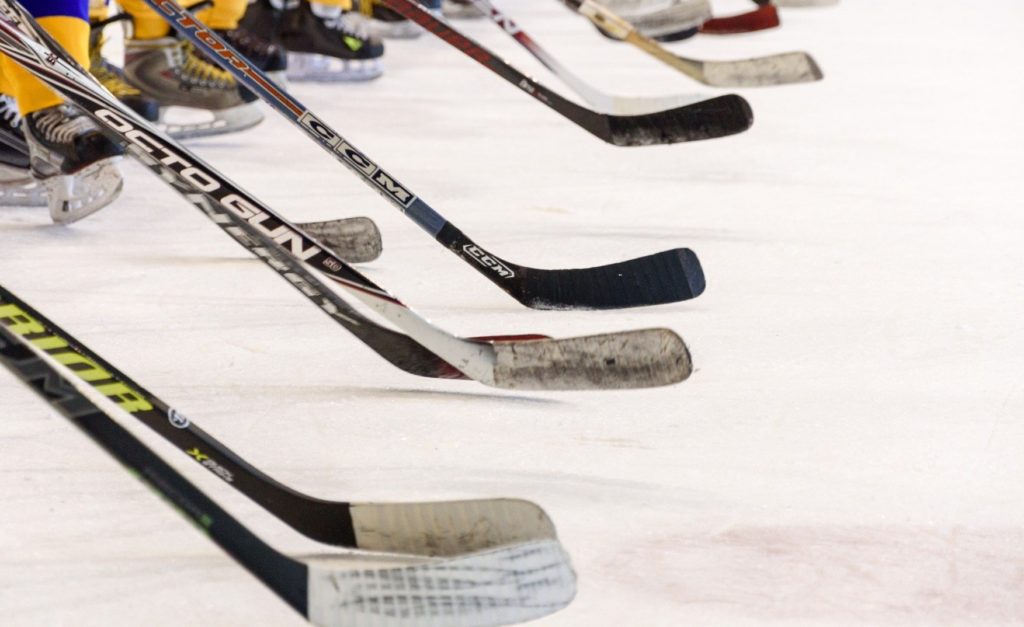
In hockey, you have more and more talked and good young kids. We take the best 22 kids. They are the ones playing on the varsity team. We have even had a couple of 8th graders make varsity. The older kids, they remember how they were treated as a freshman by the seniors and upper classmen. There was no hazing. That kid earned his right to be there. He is however entitled to something: to the same earned respect as the rest of the players on the team.
We never had any incidents of hazing, physical, or verbal abuse. The older kids look after the younger kids like they are younger brothers. The older kids set the example. You treat them as you were treated as freshmen and sophomores. We have had tremendous success with this philosophy. No kids are ever turned off by the program. The kids have each other’s backs in every aspect. Whether it is hockey, struggling in class, home, problems with troublemaker kids. These kids have each other’s backs” expressed Hanson.
Role Models
According to Hanson “The young kids are fearful at first, until the older kids take them under their wing. Shane Murphy, a freshman on team gets hit hard and fractures 3 vertebrae in his neck. This is December 28th. We are practicing at BU the next day. Every kid on the team went to sit in the hospital and wait for the kid in the emergency room at 8am in the morning. Here are these kids that have only known this kid for 28 days. The respect that these kids have, and the team unity/have your back mentality is amazing.
We as coaches live this and preach this. There has not been a wake or funeral that coach and team were not there together. Two weeks ago, today, I buried my older sister. Everybody from the hockey team was there at wake and funeral.
When kids see the sincerity in the pride a coach takes in them, they return it in spades on the ice and in life. Our assistant coaches’ mother in law just passed away. The kids came into the office and are going to meet each other as a team and go together, as a team on Sunday. They do this because it is the right thing to do.
Cancerous personalities on the team will not survive. Unless there are some sort of extenuating circumstances. If a kid is really a good kid deep down inside, we recognize that he may need more discipline. We do not allow him to use his circumstances as a crutch or allow negative behavior to happen. These are the kids who always come back to you 10 or 20 years later. The lessons they learned in this environment have stuck with them throughout life. in life.”
Expectations and Consequences
Hanson believes “If an individual is not buying into the expectations and thinks his way is better than your way, the team way, he will be reprimanded. My way is the team’s way. Will not tolerate the ego. Everybody is treated the same way. Do you expect more from some kids than others? Absolutely. Much is given then much is expected. Play to your capabilities and act accordingly. When they give you that, as a coach, that is priceless.
You forget a shirt; you are not playing. Mike Sylvia senior year. He showed up to our game against Malden Catholic. He said “Coach, I forgot my shirt, but my mother and father are bringing it.” I said, “Michael you don’t have your shirt in the arena, you are not playing.” He did not play. Does your mother wipe your ass for you? When he was inducted into the Hall of Fame, he shared this story. He never forgot a shirt or anything ever again.

Ryan Cordeiro was on the undefeated 97-98 team. We were playing Saint Johns. I told the team you are on the bus at 5:45pm. There was a gas station food mart right across the street from the bus. Ryan is at the shell station buying a Gatorade. It was 5:45. The driver closes the door. We are leaving. 5:45 is 5:45 and the bus took off and left him running out the door.
Cordiero was named the 1998 New England Player of the Year and Massachusetts Offensive Player of the Year. He was the second leading scorer all-time at CM. “The kid was used to being held accountable for his actions. He called up and said, “coach I am doing exactly the same things you did that make me the coach I am now.”
As a coach the ability to make men is critical. This becomes your legacy. Coaches get so involved; they remember everything about the sport. It is like reading a book 100 times. It gets engrained in you. We had a teacher student dodge ball game the other day. Here I am, 65 years old, competing like hell getting balls beaned off head. I kept playing hockey in over 30, 40 and 50 leagues. I am never going to ask you to do something I won’t try to do.”
Character Building
Hanson shares “We teach the kids to handle success with humility, respect for opponent, no gloating, no taunting, and be happy for what you did as a group. I know what I did to get to where I am. We won the state title 17 at the Garden and I can’t tell you how many compliments they have gotten for being gracious in victory.
As far as losing, kids feel they have a legacy to fulfill at CM, and we did not get it done. There is no casket and body in this locker room after a loss. No pity party. We want them to look at the hard work it took to get here. We want them to take pride in the work it will take to get to another state title.
The kids that come back never talk about the titles, they all talk about the experiences and the comradery. Every coach on the staff is a former player. Hockey is a simple game. When you look at the game it has not changed itself other than the equipment, training techniques, conditioning, etc.. but the game has not changed much. Now, kids know how to prepare, eat, train, etc, but the game itself is still the same. The only thing that has changed is goaltending. Now goalies go down all the time.

In hockey you need to have character. You need to be relentless to win your battle every time on the ice. You are playing with twenty other guys you would be in a fox hole with. We have each other’s backs. He is your teammate, he is your friend, may not like him, but you have his back.
You see a kid who is down you pick him up. You see a kid who has done something well, you give him the accolade. There are too many coaches that discriminate the stars. We expected more of the stars because they had god given talent and needed them to use it to work harder.
Coaching and teams are like the military. You need character and discipline. You need to put everyone beside you first and put yourself second. That is how you win battles.”
| “The bond between teammates is as strong and unconditional as the promise all SEAL operators make to defend our country: I will never quit. I persevere and thrive on adversity. My Nation expects me to be physically harder and mentally stronger than my enemies. If knocked down I will get back up, every time. I will draw on every remaining ounce of strength to protect my teammates and to accomplish our mission. I am never out of the fight (20).” Mann D. Inside SEAL Team Six: My Life and Missions with America’s Elite Warriors. Little, Brown and Company. New York, NY. 2011. |
Thanks for reading!
For more on How To Build A Winning Culture In Team Sports check out our blog or pick up your copy of the book Building A Winning Culture In High Sports……And Beyond!
